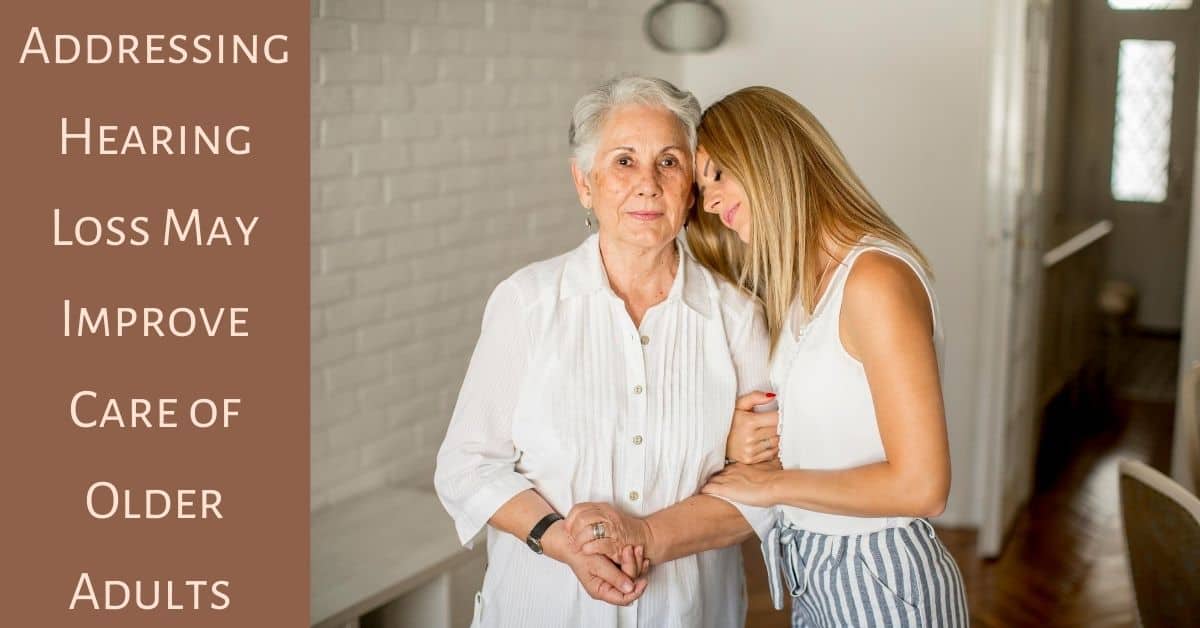One in three people over 65 and half of all seniors over 75 deal with age related hearing loss, making it the most common cause of this condition. The dangers of untreated hearing loss are a serious concern for seniors.
While depression, self-isolation, and lack of physical activity will affect anyone negatively, seniors with untreated hearing loss particularly struggle with these issues. Understanding how common this condition is in older generations can help healthcare providers and elder homes make reasonable accommodations for seniors with hearing issues, allowing them to secede, and preventing the side effects of hearing loss to escalate.
Risks for seniors living with untreated hearing loss
Understanding the risks of living with untreated hearing loss helps us make more informed decisions about ours and our loved one’s hearing. Seniors are particularly at risk for many of the dangerous side effects of hearing loss.
Most of these issues revolve around the precarious nature of advanced age and mobility. As seniors lose the ability to be independent and mobile it is easy for them to self isolate. Self-isolation brings depression, anxiety and lack of stimulation that can take a toll on mental and physical health.
When seniors become isolated their minds are less challenged and less stimulated, leading to brain atrophy and a higher risk of developing dementia. It is also more challenging to remain mobile as the hearing impaired are less aware of spaces, creating more opportunities for falls, accidents and hospitalizations. The dangers of a fall for someone at an advanced age with fragile bones and joints can have an exponentially greater impact on their mobility in the long run.
Sound processing issues for seniors
Part of the success for seniors in a medical facility is being able to hear over the constant beeps and alarms. With the constant chatter from others in a crowded facility, the clamor of the TV and poorly insulated rooms, it can be hard for seniors to hear the doctor’s medical advice.
Hearing not only happens in the ears but in the brain. As we age the tiny hairs and cells in the inner ear that transmit audio information to the brain to be processed become destroyed or damaged. This makes certain tones and frequencies impossible to hear, leaving blank spots in sentences and conversation.
The brain has to work harder than before to fill in the blanks, causing listeners fatigue and trouble prioritizing sounds. When there is competing sound it can be hard for the brain to prioritize the desired sound of a doctor or nurse over constant noise.
Compassionate medical care for the seniors with hearing loss
Understanding how hearing loss affects seniors and what practices can help them hear better will improve their overall health and wellbeing. Because of the prevalence of hearing loss 65 and up, it is recommended that people in this age bracket and up get their hearing tested annually. This way, a hearing loss can be detected before it starts to impact relationships, self-esteem, mobility and independence.
When hearing care professionals understand that someone struggles with hearing they can take extra time and care to make sure that the listening environment is ideal for hearing with a hearing loss. Make sure that the room is as quiet as possible and that when addressing someone with hearing loss that your face is well lit and un-obscured so the listener can use lip reading, facial expression and body language to better understand.
All too often, senior patients with hearing loss are re-admitted for treatment due to misunderstanding around their care. It can also help to type out the doctor recommendations or have an interpreter to help an older patient understand important information.
The benefits of hearing aids for seniors
While there is no cure for hearing loss, hearing aids are proven time and time again to amplify the sounds your ears can no longer hear, making communication less of a struggle for people of all ages. This is particularly hopeful for seniors who rely on hearing to stay connected, involved and engaged to stay mentally and physically healthy.
If you or someone you care for is struggling with hearing loss, make sure to set up a hearing test. Our team of hearing professionals can assess your hearing and help you find the best hearing aids for success! Contact us today.

